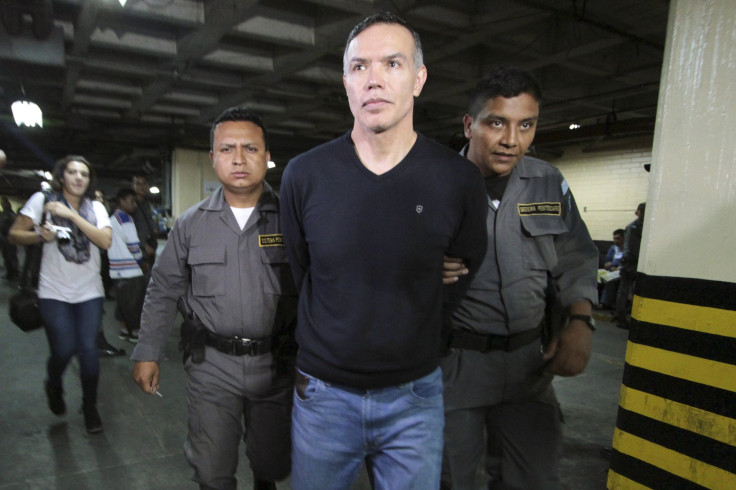
Guatemalan incumbent President Otto Perez Molina already trailed behind opposition party leader Manuel Baldizón on Wednesday when one of his administration's top officials was arrested on corruption charges. Police detained Julio Suarez, President of Guatemala's central bank, on Wednesday along with 15 others in connection with an alleged bribery scheme involving contracts with the Social Security Institute. Recent arrests of government officials are almost too numerous to mention. Only two weeks earlier, Molinas' Vice President Roxana Baldetti resigned in the wake of a customs scandal that directly involved her personal secretary.
That secretary, Juan Carlos Monzon Rojas, was the alleged leader of a group that took cash in exchange for deflated customs duties. The group effectively diverted millions of dollars from state coffers. Rojas went into hiding after the scheme became public. Authorities suspect that he fled the country. At least 50 people were charged in the customs scandal following a sophisticated probe that included wiretaps and other law-enforcement tools. Baldetti is not among them, but has been barred from leaving Guatemala. Anger over widespread corruption has led thousands of protesters to call for Molinas’ resignation, and generated momentum towards his ouster at the ballot box.
Corruption is nothing new in Guatemala, but far-reaching indictments are a sign that international efforts to fight impunity may be making progress. The Rojas indictment followed work by the U.N. International Commission Against Impunity, and internationally-driven prosecutorial authority that spearheaded the probe.
Indictments in the Julio Suarez Social Security Institute scandal was also the result of the U.N. Commission’s efforts, according to the AP. Prosecutors allege that Suarez and others took bribes in exchange for health contracts by unqualified firms. Ivan Velasquez, head of the U.N. crime-investigations unit told Bloomberg that Suarez and colleagues were receiving 15 percent of each contract.
“The people awarding this contract weren’t qualified to review the proposals,” Velasquez said, adding that the company lacked “infrastructure” and “experience” in performing dialysis.
Poor performance dialysis firms awarded contracts through the racket led directly to at least five deaths, according to the Guatemala's Attorney General.
With the country in a political crisis, Molina’s opponent Baldizón is expected to do much better in September 2015 election, a virtual rematch of the 2011 election. In 2011, lawyer and hotelier Baldizón campaigned on a promise to get the Guatemalan national team into the World Cup. Molina is a former general as the lead military negotiator in peace talks that ended Guatemala's civil war in 1996. Both Molina'a and Baldizón’s parties (Partido Patriota and LIDER) are considered center-right.
© 2024 Latin Times. All rights reserved. Do not reproduce without permission.